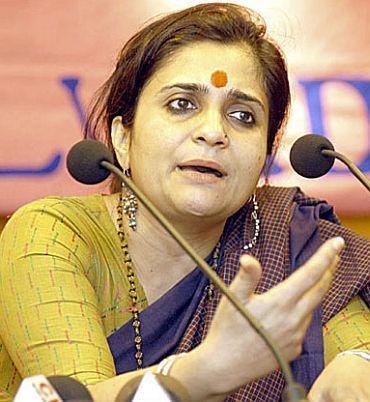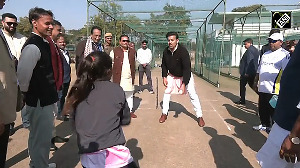 Social activist Teesta Setalvad on Monday failed to get any relief from the Supreme Court in a case in which she is accused of having a role in illegal exhumation of bodies of some victims of the 2002 Gujarat riots.
Social activist Teesta Setalvad on Monday failed to get any relief from the Supreme Court in a case in which she is accused of having a role in illegal exhumation of bodies of some victims of the 2002 Gujarat riots.
The apex court order implies that the stay on the Gujarat high court's May 27 decision refusing to quash the FIR lodged against her at a police station in Panchmahal district regarding exhumation of the bodies from a graveyard near river Panam, also gets vacated.
The top court said it would not be necessary to adjudicate on merits the plea filed by her as the chargesheet in the case has already been filed in a trial court.
A bench, comprising Justices Arun Mishra and Amitava Roy, said it would be appropriate for Setalvad to seek all the remedy, including the quashing of the charge sheet filed on April 3, 2011, before the trial court.
"When the chargesheet is there, can't you go and raise all these questions before the trial court," the bench asked senior counsel Kapil Sibal, appearing for Setalvad.
"It is not necessary to adjudicate the matter on merits," the bench said, disposing her appeal against the high court order while giving her the liberty to approach the trial court.
Sibal, along with advocate Aparna Bhat, said though the chargesheet has been filed, no offence has been made out against Setalvad in the case.
The social activist has denied the allegations claiming that she was victimised for taking up the cause of the riot victims.
Earlier, the Gujarat government, in an affidavit, had justified its probe against Setalvad in the case saying she had actually planned and executed the digging of the graves without any permission in 2006.
It had claimed that during the probe, it had emerged that "Teesta Setalvad, the petitioner herein, was the main accused, who actually planned and executed this operation of digging of graves near Pandarwada through her staff."
The government had alleged that the other accused have claimed innocence and blamed Setalvad for instigating them to carry out the exhumation, which is a penal offence.
It had said the exhumation of the dead bodies without permission of the competent authorities constituted an offence under sections 192 (fabricating false evidence), 193 (punishment for false evidence, 201 (causing disappearance of evidence), 120-B criminal conspiracy), 295(A) (deliberate and malicious acts intended to outrage religious feelings) and 297 (trespassing on burial places) of the IPC.
It was alleged that in 2002, about 28 unidentified bodies of the riot victims from Pandarwada and surrounding villages in Khanpur taluka were buried in the graveyard.
Though, the high court had declined to scrap the FIR, it had quashed the summons, which had termed Setalvad as absconding.
Meanwhile, Setalvad's NGO Citizens for Justice and Peace also filed a petition challenging the high court's order allowing the Gujarat Police to investigate the alleged fabrication of evidence of a riot case involving her former close aide Rais Khan Pathan.
The bench said the matter would be listed for hearing in the next week.










 © 2025 Rediff.com -
© 2025 Rediff.com -